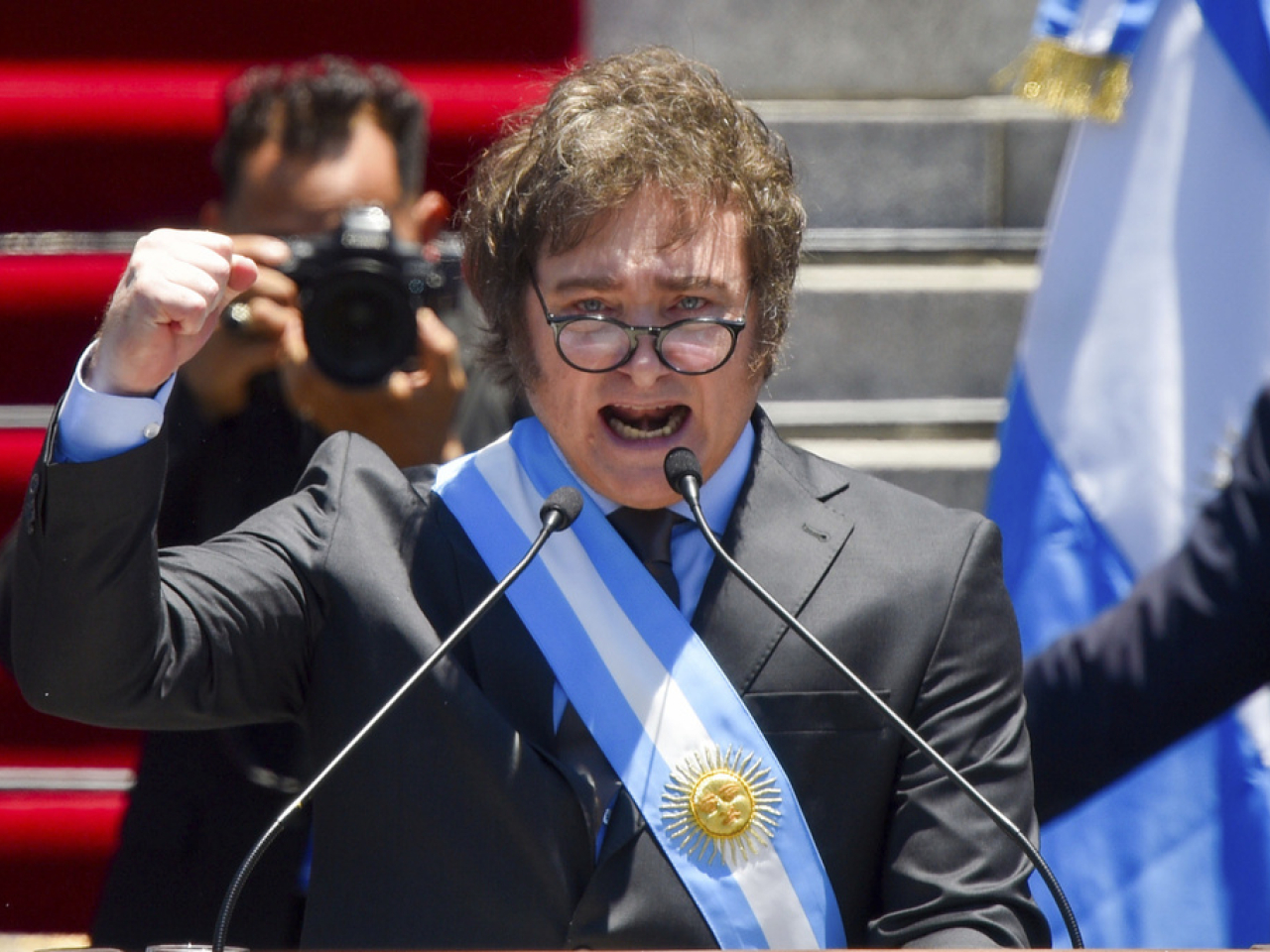
After a year in office, Argentine President Javier Milei has implemented his promised "shock therapy" economic reforms. While inflation has fallen significantly, and the fiscal deficit has turned into a surplus, these "achievements" hide deeper issues of growing social inequality and a soaring poverty rate. During his campaign, Milei won voter support with promises to "pull Argentina out of its historical economic quagmire and lead it to prosperity." However, the country’s economic realities have put these promises to the test.
Before Milei took office, Argentina was mired in severe inflation and a debt crisis. He pledged to stabilize the economy rapidly through comprehensive market liberalization, government spending cuts, and dollarization. By October 2024, Argentina’s monthly inflation rate had dropped from 25.5% at the end of 2023 to 2.7%, its lowest in three years, and the fiscal deficit had turned into a surplus. These figures seem to validate the early success of Milei’s reforms. However, for ordinary citizens, the sharp rise in living costs has made the promise of "revival" feel out of reach. Particularly, electricity and gas rates have surged far beyond the drop in inflation, significantly increasing the burden on households. Economists have noted that the government’s inflation data fail to accurately reflect changes in consumption weights, resembling more of a "numerical facelift" than genuine economic recovery.
Upon taking office, Milei fulfilled his campaign pledge to downsize the government by implementing measures such as layoffs, subsidy cuts, and halting public projects, which led to a fiscal surplus. However, these policies directly hit low- and middle-income groups. Argentina’s poverty rate rose from 42% to 52.9%, and the extreme poverty rate reached 18.1%, the highest in 20 years. This stands in stark contrast to Milei’s promise to "bring economic opportunities to ordinary citizens." Instead, many middle-class households faced sharply rising living costs, with the prices of essential goods doubling, leading to a sharp decline in consumer demand.
In Buenos Aires, many residents have been forced to cut back on daily expenses, abandon personal vehicle use, and rely on public transportation or even lawsuits to combat soaring utility bills. This economic pain has dampened consumer and investment confidence, further stalling the recovery of manufacturing and mining industries and creating a vicious cycle.
Comprehensive dollarization was one of Milei’s core campaign promises, which he portrayed as a key measure to curb inflation and attract foreign investment. Yet, a year later, this promise remains unfulfilled. Argentina's insufficient foreign exchange reserves and the loss of monetary policy sovereignty have posed significant barriers to implementing dollarization. To appease voters, the government introduced a "transitional monetary stabilization" plan, but this is merely a temporary fix and fails to address Argentina’s structural economic issues.
Meanwhile, Milei’s commitment to "market liberalization" has had unforeseen consequences. While investment enthusiasm has revived in some sectors, small businesses and low-income groups have borne the brunt of rising costs, which outweigh the benefits of the reforms. This starkly contrasts with Milei’s initial vision of "making market prosperity benefit the entire society."
Milei’s reform vision, championed during his campaign, has garnered support from some voters who believe that "pain is an inevitable step toward economic health" and that market liberalization and dollarization will unlock Argentina's economic potential. However, many others, especially low-income groups, remain skeptical of the reforms, viewing them as sacrifices of social equity that exacerbate income inequality.
Milei’s "shock therapy" has alleviated inflation and fiscal deficits in the short term but has failed to deliver on its core promise of benefiting ordinary citizens. The decline in living standards for low- and middle-income groups, along with increasing social inequality, poses significant challenges to Milei’s reform trajectory.
Going forward, the Milei administration must reassess the social costs of its policies and focus more on social equity while delivering on its economic promises. Argentina needs not only impressive economic statistics but also sustainable mechanisms that balance economic efficiency with social fairness. This will be the key to whether the Milei administration can fulfill its campaign promises and truly lead Argentina out of its economic quagmire.

報告顯示,中國電力投資加速增長,預計2024年電網基建投資將超過5300億元。
近日,市場迎來了一則引人注目的消息:工業巨頭3M公司(MMM.N)在本周五公布了其季度業績報告,隨後股價飆升至近兩年來的
最近,外媒給OpenAI算了筆賬,今年可能要血虧50億美元。
近日,巴黎奧運會和世界鐵人三項協會聯合發布了一項重大決定,宣布因塞納河水質污染問題,原定於近期進行的奧運會鐵人三項首次下
當地時間7月18日,法國巴黎發生了一起令人震驚的持刀襲警事件。
近期,一則重大消息在國際舞臺上引起軒然大波,馬來西亞宣布加入金磚國家。
調查發現,互聯網和智能手機的使用幹擾了韓國近五分之一學生的生活。